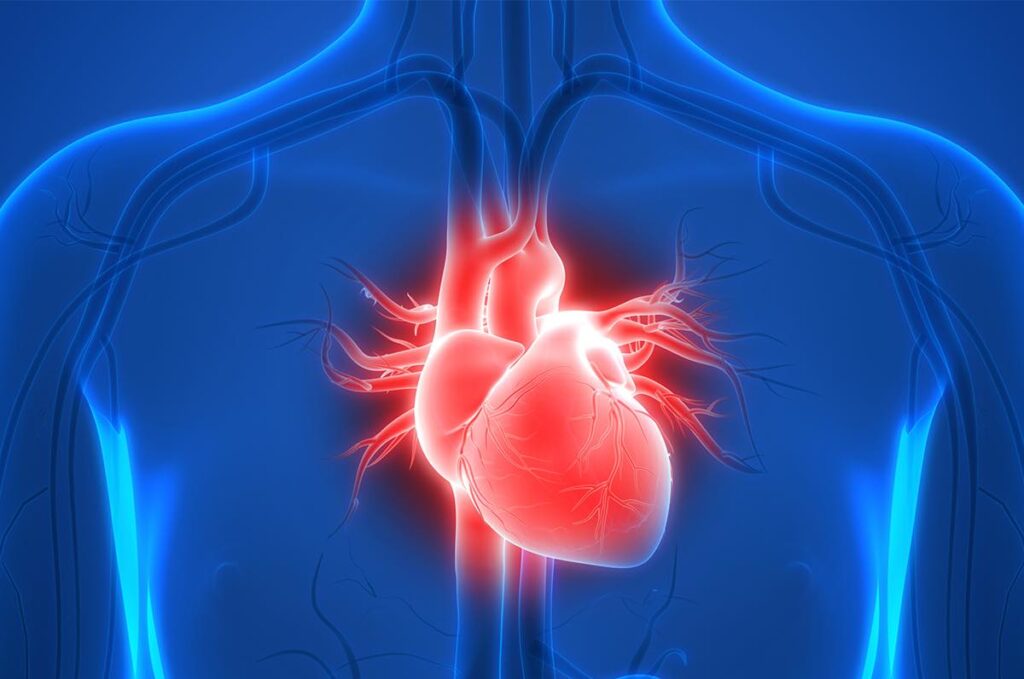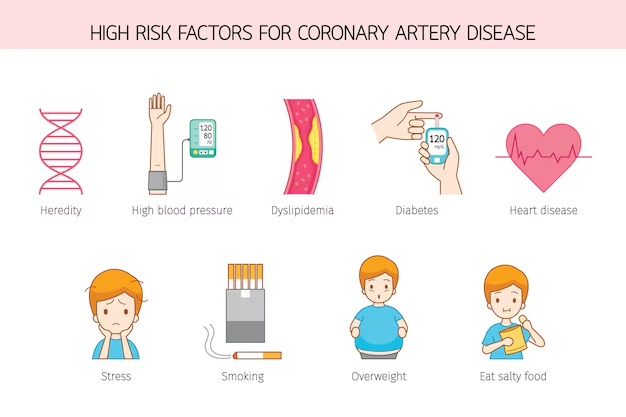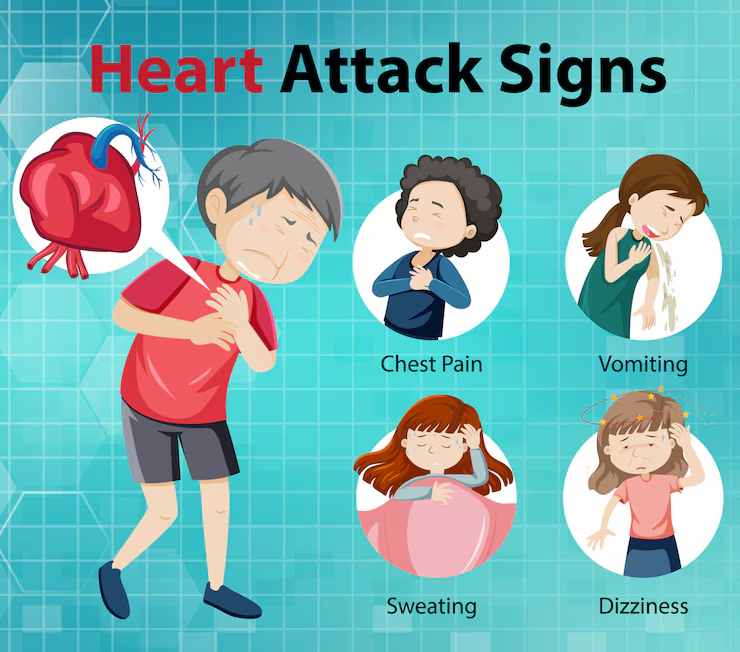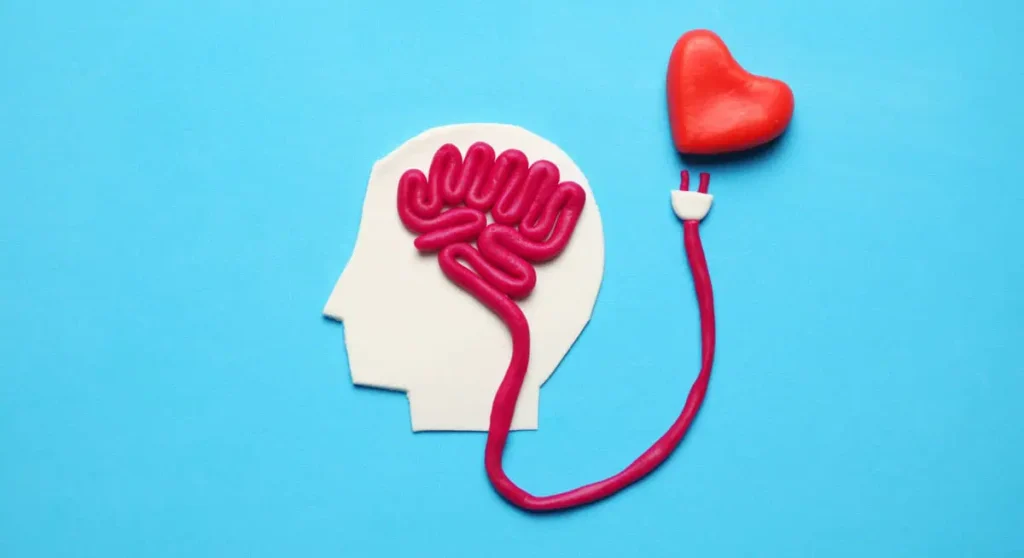Heart health plays a major part in how long and how well we live. A healthy heart supports energy levels, brain function, and even emotional balance. Sadly, heart disease is still one of the top causes of death around the world. The good news is that many heart problems can be prevented through lifestyle changes and awareness.
The heart is often referred to as the engine of life. It works continuously, beating nearly 100,000 times each day to circulate blood, oxygen, and nutrients throughout the body. This nonstop function keeps every organ and tissue alive and active. Because of its vital role, taking care of your heart is essential for your overall well-being.
Understanding how the heart works and what affects it is the first step to protection. Factors like poor diet, lack of exercise, smoking, and stress can weaken heart health. Making small, positive choices every day can help you maintain a strong heart and enjoy a longer, healthier life.
In this guide, we’ll explore the anatomy and function of the heart, common heart conditions, risk factors, and most importantly, practical strategies to keep your heart in prime condition.
Understanding Your Heart: Anatomy and Function

The heart is a strong, fist-sized muscle found slightly to the left of the center of your chest. It plays a key role in maintaining heart health by constantly pumping blood to supply oxygen and nutrients throughout the body.
This powerful organ has four chambers: the upper two are called atria, and the lower two are ventricles. These chambers work together in a rhythm to keep your blood flowing properly, which is essential for good heart health and overall wellness.
How the Heart Works
Blood Circulation: The heart plays a vital role in blood circulation, which is essential for heart health. The right side of the heart receives deoxygenated blood from various parts of the body. It then sends this blood to the lungs, where it receives fresh oxygen. Once oxygenated, the blood returns to the left side of the heart, which pumps it out to the entire body, delivering oxygen and nutrients to every cell.
Heartbeat and Electrical System: A healthy heartbeat is controlled by the heart’s electrical system. The sinoatrial (SA) node, known as the natural pacemaker, generates electrical impulses that cause the heart muscles to contract in a steady rhythm. This coordinated beating ensures that blood moves efficiently through the heart and to the rest of the body, which is essential for maintaining proper heart health and function.
Valves: The heart has four important valves—mitral, tricuspid, aortic, and pulmonary. These valves ensure blood flows in one direction and prevent backflow. Proper valve function is critical for heart health, as it keeps blood moving smoothly through each part of the heart and circulatory system.
Why Heart Health Matters
A healthy heart plays a key role in keeping the body strong and active. It ensures that blood circulates efficiently, carrying oxygen and essential nutrients to all organs and tissues. This continuous flow supports energy levels, brain function, and overall physical health. Good heart health helps the body work at its best, allowing you to stay active, focused, and balanced throughout the day.
When heart health is weakened, the entire body feels the impact. Poor circulation can lead to fatigue, shortness of breath, and reduced function of vital organs like the kidneys, liver, or brain. In serious cases, it may even cause life-threatening conditions such as heart failure or sudden cardiac arrest. That’s why protecting your heart through healthy habits like exercise, balanced nutrition, and regular checkups is so important for your well-being and long-term quality of life.
Heart disease can lead to conditions such as:
Heart attacks (myocardial infarction)
Heart failure
Arrhythmias (irregular heartbeats)
Stroke
High blood pressure (hypertension)
Common Heart Diseases and Conditions
Coronary Artery Disease (CAD)
Coronary Artery Disease is the most widespread type of heart condition and a major threat to heart health. It happens when the arteries that deliver blood to the heart muscle become narrowed or completely blocked due to a buildup of fatty deposits known as plaque—a condition called atherosclerosis. This restricted blood flow reduces the oxygen supply to the heart, causing symptoms such as chest pain (angina) and can lead to severe events like heart attacks.
Hypertension (High Blood Pressure)

High blood pressure, also called hypertension, puts extra strain on the heart and blood vessels. Over time, this forceful pressure can damage artery walls, making them less flexible and more prone to blockage. This condition is harmful to heart health, as it increases the likelihood of serious complications including heart attacks, strokes, and kidney problems. Managing blood pressure through lifestyle changes and medication is essential for maintaining heart health.
Heart Failure
Heart failure occurs when the heart becomes too weak or stiff to pump enough blood to meet the body’s needs. It often develops after other heart problems, such as coronary artery disease or long-term high blood pressure, have damaged the heart. This leads to symptoms like fatigue, breathlessness, and fluid buildup. Maintaining heart health by addressing early signs and managing conditions can help prevent the progression to heart failure.
Arrhythmias
Arrhythmias refer to abnormal heart rhythms, which can disrupt the heart’s ability to pump blood effectively. These may cause the heart to beat too quickly, too slowly, or in an irregular pattern. While some arrhythmias are harmless, others can pose serious risks to heart health and may lead to dizziness, fainting, or even sudden cardiac arrest. Diagnosing and treating arrhythmias early supports overall heart health.
Congenital Heart Defects
Congenital heart defects are structural problems of the heart that are present at birth. These abnormalities may involve the heart’s walls, valves, or blood vessels and can affect how blood flows through the heart and to the rest of the body. While some defects are minor and require little treatment, others need surgery or lifelong monitoring. Early detection and medical care are vital to protect long-term heart health in individuals born with these conditions.
Risk Factors for Heart Disease
Several factors increase the likelihood of developing heart disease:
Modifiable Risk Factors
Unhealthy Diet: Consuming foods high in saturated fats, trans fats, cholesterol, salt, and sugar can negatively impact heart health. These unhealthy choices contribute to plaque buildup in arteries, high blood pressure, and weight gain.
Physical Inactivity: A lack of regular physical activity can lead to poor circulation, increased body fat, and high blood pressure. Staying active is essential for supporting good heart health and overall fitness.
Smoking: Tobacco use damages blood vessels, lowers oxygen levels in the blood, and raises blood pressure. All of these effects severely harm heart health and increase the risk of heart disease.
Excessive Alcohol Consumption: Drinking too much alcohol can raise blood pressure, contribute to obesity, and lead to abnormal heart rhythms, all of which threaten heart health.

Obesity: Carrying excess body weight puts added strain on the heart and is closely linked to conditions like diabetes and hypertension, which directly affect heart health.
Diabetes: High blood sugar levels can damage blood vessels over time, raising the risk of heart disease. Managing diabetes is vital for protecting heart health.
Chronic Stress: Ongoing stress can lead to high blood pressure and unhealthy coping behaviors like overeating or smoking, which are harmful to heart health.
Poor Sleep: Conditions like sleep apnea or not getting enough rest can raise the risk of heart disease. Quality sleep is important for maintaining strong heart health.
Non-modifiable Risk Factors
Age: As people grow older, their risk of developing heart problems naturally increases. Aging causes changes in blood vessels and the heart itself, which can affect heart health over time.
Gender: Men typically face a higher risk of heart disease earlier in life. However, after menopause, women’s risk rises and often matches that of men. This shift highlights the importance of monitoring heart health in both genders at different life stages.
Family History: A family history of heart disease can increase your chances of developing similar conditions. Genetics play a significant role in heart health, especially if close relatives have experienced early heart issues.
Ethnicity: Certain ethnic groups are more likely to experience heart-related problems. For example, people of South Asian, African, or Hispanic descent may face a higher risk due to genetic and lifestyle factors that influence heart health.
How to Maintain a Heart Health
Adopt a Heart-Healthy Diet
A nutritious diet is one of the most important foundations for maintaining good heart health. Eating a variety of fruits, vegetables, whole grains, lean proteins, and healthy fats helps support proper heart function. These foods provide essential nutrients like fiber, antioxidants, and healthy oils that help reduce inflammation and lower harmful cholesterol levels.
Avoiding foods high in saturated fats, trans fats, added sugars, and excessive salt is equally important. Such unhealthy foods can increase the risk of high blood pressure, obesity, and clogged arteries. By making smart food choices every day, you can actively protect and improve your heart health.
Focus on Whole Foods: For optimal heart health, it’s essential to prioritize whole foods such as vegetables, fruits, whole grains, nuts, seeds, and legumes. These nutrient-rich foods provide a wide array of vitamins, minerals, and fiber, which support healthy circulation and reduce the risk of heart disease. Whole foods also help maintain a healthy weight, which is key for overall heart health.
Healthy Fats: Including healthy fats into your diet can significantly improve heart health. Use sources like olive oil, avocado, and fatty fish (such as salmon or mackerel), which are rich in omega-3 fatty acids. These healthy fats help lower harmful cholesterol levels and reduce inflammation, unlike saturated and trans fats that can increase the risk of heart disease.
Limit Salt: Excessive sodium in your diet can lead to high blood pressure, a major risk factor for heart disease. To support heart health, try to limit your salt intake by reducing processed foods and using herbs and spices for flavor instead.
Cut Back on Sugar: Consuming too much sugar can contribute to obesity, diabetes, and high blood pressure—conditions that negatively impact heart health. Reducing sugar intake by cutting back on sugary drinks, snacks, and processed foods can help prevent these heart disease risk factors.
Moderate Alcohol Consumption: Drinking alcohol in moderation is key to protecting heart health. For women, it’s recommended to limit alcohol to one drink per day, and for men, up to two drinks daily. Excessive alcohol consumption can raise blood pressure and contribute to unhealthy weight gain, both of which can harm heart health.
Regular Physical Activity

Regular physical activity is essential for maintaining good heart health. Exercise helps strengthen the heart, improve circulation, and lower blood pressure. Activities like walking, cycling, or swimming can increase heart efficiency and reduce the risk of heart disease.
In addition, staying active helps maintain a healthy weight, lower cholesterol levels, and reduce stress—factors that all contribute to better heart health. Aim for at least 150 minutes of moderate exercise each week to boost heart health and enjoy a longer, healthier life.
Aim for at least 150 minutes of moderate aerobic exercise (e.g., brisk walking, swimming) or 75 minutes of vigorous exercise per week.
Include strength training twice a week.
Stay active throughout the day by reducing sedentary time.
Maintain a Healthy Weight
Maintaining a healthy weight is crucial for heart health. Carrying excess weight puts extra strain on the heart, making it work harder to pump blood throughout the body. By losing weight, you can lower your blood pressure, reduce cholesterol levels, and decrease the risk of developing heart disease. Healthy eating and regular physical activity are key components of achieving and maintaining an optimal weight, ultimately promoting better heart health.
Quit Smoking
Quitting smoking is one of the most effective ways to improve heart health. Smoking damages blood vessels, raises blood pressure, and decreases oxygen levels in the blood, all of which increase the risk of heart disease. When you quit, your heart health improves rapidly, as blood flow and lung function start to recover. Stopping smoking also lowers the risk of stroke and other cardiovascular problems, helping to protect your heart for the long term.
Manage Stress
Chronic stress increases blood pressure and unhealthy habits.
Practice relaxation techniques such as meditation, yoga, or deep breathing.
Maintain social connections.
Pursue hobbies and activities that bring joy.
Monitor and Manage Blood Pressure, Cholesterol, and Diabetes
Regular check-ups with your healthcare provider are crucial.
If diagnosed with hypertension, follow treatment plans strictly.
Maintain healthy cholesterol levels through diet, exercise, and medication if needed.
Manage blood sugar levels if diabetic.
Get Enough Quality Sleep
Aim for 7-9 hours of restful sleep per night.
Address sleep disorders like sleep apnea.
Maintain a consistent sleep schedule.
Recognizing Warning Signs of Heart Problems
Early detection saves lives. Be alert for symptoms such as:
Chest pain or discomfort

Shortness of breath
Pain in the arms, neck, jaw, back, or stomach
Irregular heartbeat or palpitations
Unexplained fatigue or dizziness
Swelling in the legs, ankles, or feet
If you experience these symptoms, especially chest pain, seek medical help immediately.
Innovations in Heart Health Care
Modern medicine offers advanced options for diagnosing and treating heart disease:
Non-invasive Imaging: Non-invasive imaging techniques such as echocardiograms, CT scans, and MRIs provide detailed images of the heart without the need for surgery. These advanced heart health tools allow doctors to evaluate heart function, detect abnormalities, and monitor conditions like coronary artery disease or heart valve problems. With these methods, healthcare providers can get a comprehensive view of the heart’s structure and function, enabling timely and accurate diagnoses.
Minimally Invasive Procedures: Minimally invasive procedures, including angioplasty and stenting, play a crucial role in restoring blood flow to the heart. These treatments help open blocked arteries, allowing oxygen-rich blood to reach the heart muscle. This reduces the risk of heart attacks and other complications, making them vital for improving heart health without requiring major surgery. These procedures are particularly beneficial for patients with coronary artery disease.
Pacemakers and Defibrillators: Pacemakers and defibrillators are essential devices for managing arrhythmias and other heart rhythm problems. Pacemakers help regulate the heart’s beat by sending electrical signals when necessary, while defibrillators deliver shocks to restore a normal rhythm during life-threatening arrhythmias. Both devices are key in improving heart health by preventing serious complications and supporting normal heart function.
Heart Transplantation and Ventricular Assist Devices: For patients with severe heart failure, heart transplantation or the use of ventricular assist devices (VADs) can be lifesaving. A heart transplant involves replacing a failing heart with a donor heart, while VADs help pump blood when the heart is too weak. These treatments provide an option for patients with end-stage heart disease, offering them a chance at improved heart health and quality of life.
Precision Medicine: Precision medicine, guided by genetic testing, allows doctors to tailor treatments based on an individual’s unique genetic makeup. This approach helps identify the most effective therapies for various heart conditions, ensuring more personalized and targeted treatment plans. By focusing on the genetic factors influencing heart health, precision medicine can lead to better outcomes and reduce the risk of adverse reactions.
The Role of Mental Health in Heart Health
Mental and emotional well-being is closely linked to heart health. Depression, anxiety, and chronic stress can increase heart disease risk and hinder recovery.

Seek professional help if struggling with mental health.
Foster strong social support networks.
Maintain a balance between work and personal life.
Heart Health Myths Debunked
Myth 1: Only Older Adults Get Heart Disease
Heart disease can affect people of all ages, not just older adults. While the risk increases with age, young adults are also susceptible, especially if they have poor lifestyle habits such as unhealthy eating, lack of exercise, or smoking. Early lifestyle choices have a significant impact on heart health, and adopting healthy habits early on can reduce the risk of heart disease later in life.
Myth 2: Heart Disease Only Affects Men
While it is often believed that heart disease primarily affects men, women are equally at risk. In fact, heart disease is one of the leading causes of death among women. However, women often experience different symptoms, such as nausea or shortness of breath, rather than the typical chest pain associated with heart attacks. Recognizing these differences is crucial for protecting heart health in women.
Myth 3: Heart Disease Is Inevitable with Family History
Although a family history of heart disease can increase the risk, genetics are not the sole factor in developing heart problems. Lifestyle choices such as maintaining a healthy diet, exercising regularly, and managing stress play a major role in heart health. Even with a genetic predisposition, making healthy choices can significantly lower the risk of heart disease.
Myth 4: If I Feel Fine, My Heart Is Healthy
Just because you feel fine doesn’t mean your heart is healthy. Heart disease can often develop silently, without noticeable symptoms, until it reaches an advanced stage. That’s why regular screenings and check-ups are important for monitoring heart health. Early detection allows for timely interventions that can prevent more serious complications down the road.
Creating a Heart-Healthy Lifestyle Plan
Taking charge of your heart health starts with simple, sustainable steps.
Step 1: Set Realistic Goals
Start with small changes such as adding one vegetable a day or walking 10 minutes.
Step 2: Track Progress
Use apps or journals to monitor food, exercise, and symptoms.
Step 3: Build a Support System
Share your goals with family and friends or join groups.
Step 4: Celebrate Milestones
Reward yourself for progress with non-food rewards.
Conclusion

Maintaining good heart health is crucial for a long and fulfilling life. By making informed choices, such as eating a nutritious diet, staying active, and avoiding harmful habits like smoking and excessive drinking, you can reduce the risk of heart disease. Regular check-ups and screenings also play an essential role in early detection, even when no symptoms are present. Lifestyle factors, such as managing stress and maintaining a healthy weight, further contribute to heart health by supporting proper circulation and reducing strain on the heart.
While family history and age can influence heart health, it’s important to remember that many risk factors are within your control. Small, consistent changes can have a lasting impact on heart health, leading to better overall well-being. Taking proactive steps to protect your heart can help you live a longer, healthier life and significantly reduce the risk of heart disease.
FAQs
Q1. What are the best foods for heart health ?
Eating a balanced diet rich in fruits, vegetables, whole grains, lean proteins, and healthy fats like olive oil and fatty fish can help support heart health.
Q.2 How much exercise should I do for a healthy heart ?
Aim for at least 150 minutes of moderate-intensity exercise each week to keep your heart healthy and reduce the risk of heart disease.
Q.3 Can heart disease affect younger people ?
Yes, heart disease can affect people of all ages. Early lifestyle choices, such as eating well and staying active, play a crucial role in heart health.
Q.4 How can I lower my risk of heart disease if I have a family history ?
While genetics play a role, adopting a healthy lifestyle—such as regular exercise, a balanced diet, and avoiding smoking—can significantly reduce your risk.
Q.5 Why is regular heart screening important ?
Heart disease can develop without noticeable symptoms. Regular screenings help detect early signs of heart problems, allowing for timely intervention and better outcomes.
